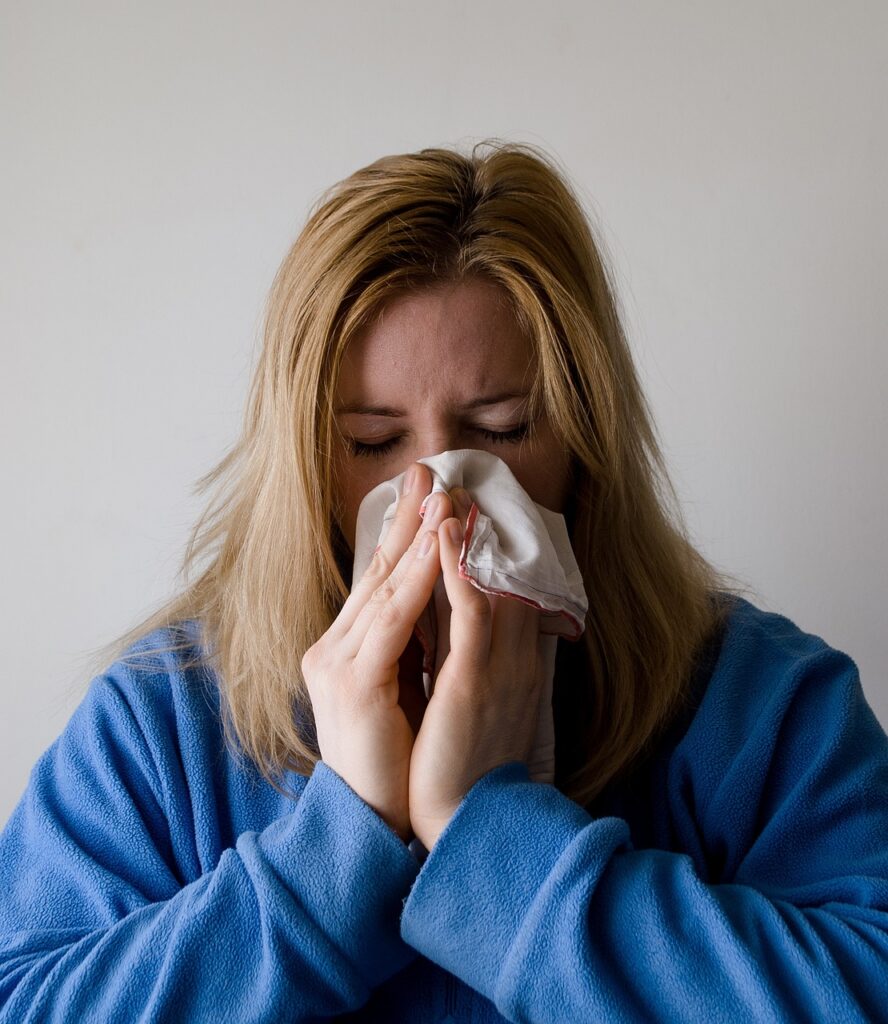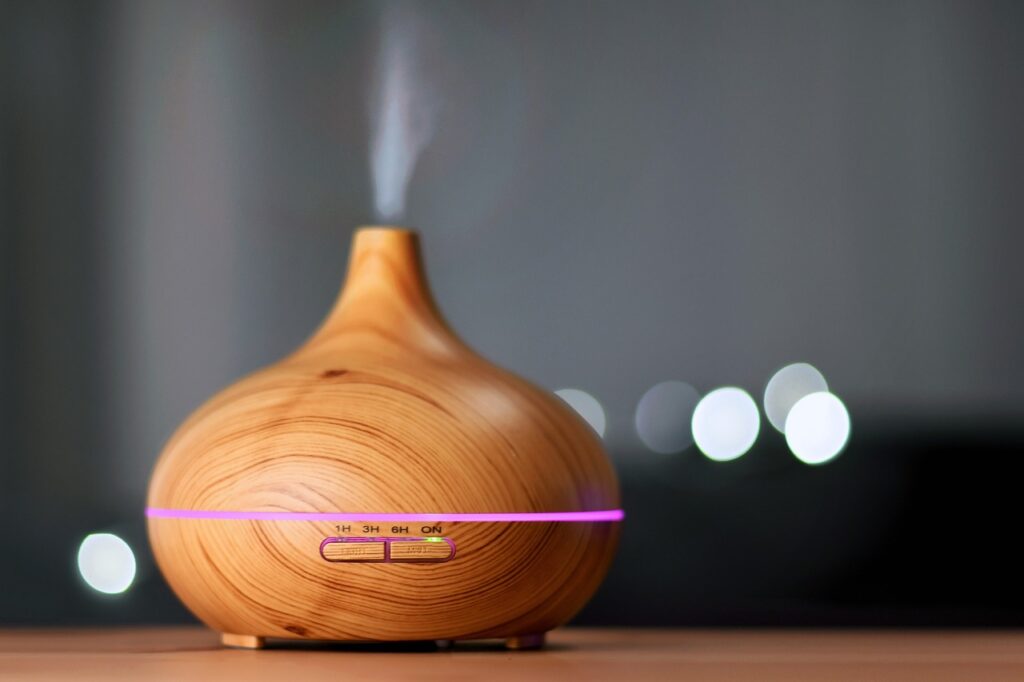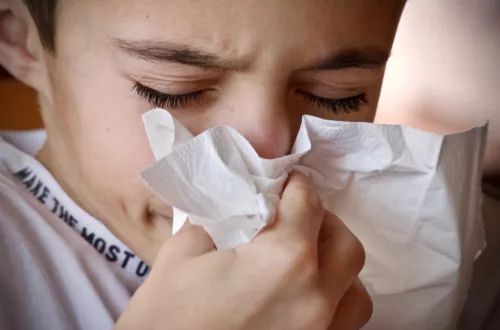Mucus is a natural substance produced by the body to protect and lubricate the respiratory system. However, excessive mucus can cause discomfort and lead to various health issues. Fortunately, there are natural remedies available to help remove excess mucus from the body. In this article, we will explore the best herbs to remove mucus from the body and how they can help improve respiratory health.
Disclaimer: This article is provided for informational purposes only and should not replace professional medical advice. Please consult with a qualified healthcare practitioner or herbalist before using any herbal remedies.

Herbs have been used for centuries to treat various ailments, including respiratory issues. Many herbs have natural expectorant properties that help break up and expel mucus from the body. Some herbs also have anti-inflammatory properties that can help reduce swelling and irritation in the respiratory system. By incorporating these herbs into your daily routine, you can help improve respiratory health and reduce discomfort caused by excessive mucus.
Key Takeaways
- Natural herbs can help remove excess mucus from the body.
- Herbs with expectorant and anti-inflammatory properties are particularly useful for respiratory health.
- Incorporating herbs into your daily routine can help improve respiratory health and reduce discomfort caused by excessive mucus.
Understanding Mucus and Its Role
Mucus is a gel-like substance that is produced by the mucus membranes in the body. It is an essential part of the immune system and plays a vital role in protecting the body from harmful pathogens and irritants. The mucus membranes line the respiratory, digestive, and reproductive tracts, and they produce mucus to keep these areas moist and to trap foreign particles, such as bacteria, viruses, and dust.
Mucus production is a natural process that helps to keep the body healthy. However, when there is an excess of mucus, it can lead to mucus buildup and cause discomfort and other health issues. Excess mucus can be caused by a variety of factors, including allergies, infections, and irritants.
When mucus production increases, it can become thick and sticky, making it difficult for the body to expel it. This can lead to a buildup of mucus in the respiratory tract, which can cause coughing, congestion, and breathing difficulties. Thick phlegm can also be a symptom of an underlying health condition, such as bronchitis or pneumonia.
Clear mucus, on the other hand, is a sign that the body is healthy and functioning correctly. It is a natural lubricant that helps to protect the mucus membranes and keep them moist. Clear mucus is also an essential part of the digestive process, as it helps to break down food and absorb nutrients.
In summary, mucus plays a crucial role in protecting the body from harmful pathogens and irritants. However, excess mucus can cause discomfort and other health issues. Clear mucus is a sign of a healthy body, while thick phlegm can be a symptom of an underlying health condition.
Common Causes of Excessive Mucus
Mucus is a natural substance produced by the body to protect and lubricate the respiratory system. However, excessive mucus production can be a symptom of an underlying health condition. Here are some common causes of excessive mucus:
Respiratory Problems
Respiratory problems such as asthma, chronic obstructive pulmonary disease (COPD), and bronchitis can cause excessive mucus production. In these conditions, the airways become inflamed, leading to the production of more mucus than usual.

Bacterial Infections
Bacterial infections such as sinusitis, pneumonia, and tuberculosis can cause excessive mucus production. In these infections, the body produces more mucus to help trap and eliminate the bacteria.
Viral Infections
Viral infections such as the common cold, flu, and COVID-19 can also cause excessive mucus production. In these infections, the body produces more mucus to help flush out the virus.
Respiratory Tract Infections
Respiratory tract infections such as bronchiolitis and croup can cause excessive mucus production in children. In these infections, the airways become inflamed, leading to the production of more mucus than usual.
Chronic Bronchitis
Chronic bronchitis is a type of COPD that causes inflammation and narrowing of the airways. This can lead to excessive mucus production, which can make it difficult to breathe.
Cystic Fibrosis
Cystic fibrosis is a genetic disorder that affects the respiratory and digestive systems. It causes the body to produce thick, sticky mucus that can clog the airways and lead to infections.
Seasonal Allergies
Seasonal allergies such as hay fever can cause excessive mucus production. In these allergies, the body produces more mucus to help flush out the allergen.
Gastroesophageal Reflux Disease
Gastroesophageal reflux disease (GERD) is a condition in which stomach acid flows back into the esophagus. This can cause irritation and inflammation, leading to excessive mucus production in the throat.
Natural Remedies for Mucus Removal
Mucus is a natural substance produced by the body to protect and lubricate the respiratory system. However, excessive mucus can be a nuisance and lead to discomfort, coughing, and congestion. There are many natural remedies that can help remove excess mucus from the body.
Home Remedies
Home remedies are a popular and effective way to remove mucus from the body. Some of the best home remedies for mucus removal include:
- Steam inhalation: Inhaling steam can help loosen mucus and make it easier to expel. Boil water in a pot, lean over the pot, and inhale the steam for 10-15 minutes.
- Saltwater gargle: Gargling with salt water can help reduce mucus and soothe a sore throat. Mix 1/2 teaspoon of salt in a glass of warm water and gargle for 30 seconds.
- Honey and lemon: Honey and lemon have antibacterial properties and can help soothe a sore throat. Mix 1 tablespoon of honey and 1 tablespoon of lemon juice in a glass of warm water and drink it.
- Ginger tea: Ginger has anti-inflammatory properties and can help reduce mucus production. Boil water, add sliced ginger, and steep for 10-15 minutes. Add honey and lemon juice for taste.

Natural Remedies
Natural remedies are another effective way to remove mucus from the body. Some of the best natural remedies for mucus removal include:
- Eucalyptus oil: Eucalyptus oil has decongestant properties and can help reduce mucus production. Add a few drops of eucalyptus oil to a bowl of hot water, cover your head with a towel, and inhale the steam.
- Peppermint oil: Peppermint oil has expectorant properties and can help loosen mucus. Add a few drops of peppermint oil to a bowl of hot water, cover your head with a towel, and inhale the steam.
- Turmeric: Turmeric has anti-inflammatory properties and can help reduce mucus production. Mix 1/2 teaspoon of turmeric powder in a glass of warm milk and drink it before bedtime.
- Garlic: Garlic has antibacterial properties and can help reduce mucus production. Add garlic to your meals or eat it raw.
Best Way to Remove Mucus
The best way to remove mucus from the body depends on the individual’s preference and condition. However, the most effective way to remove mucus is to combine home remedies and natural remedies. Drinking plenty of fluids, avoiding dairy products, and staying away from irritants like smoke and pollution can also help reduce mucus production.
Effective Ways to Remove Mucus
Effective ways to remove mucus from the body include:
- Staying hydrated: Drinking plenty of fluids can help thin out mucus and make it easier to expel.
- Using a humidifier: A humidifier can help moisten the air and reduce mucus production.
- Eating spicy foods: Spicy foods can help loosen mucus and make it easier to expel.
- Exercising: Exercise can help improve circulation and reduce mucus production.
In conclusion, there are many natural remedies and effective ways to remove mucus from the body. By combining home remedies, natural remedies, and healthy habits, individuals can reduce mucus production and improve their respiratory health.
Hydration and Its Importance
One of the most important things to consider when trying to remove mucus from the body is hydration. Drinking plenty of fluids is essential to keep the body hydrated and to help flush out excess mucus.
Hot water is particularly helpful in this regard. Drinking a glass of warm water can help to loosen mucus and make it easier to expel. It can also help to soothe irritation in the throat and reduce inflammation.
In addition to drinking water, there are other ways to stay hydrated. Eating foods that are high in water content, such as fruits and vegetables, can also help to keep the body hydrated.

It is important to note that not all fluids are created equal. Sugary drinks and alcohol can actually dehydrate the body, making it harder to remove mucus. It is best to stick to water and herbal teas when trying to stay hydrated and remove excess mucus from the body.
Overall, staying hydrated is an important part of any mucus-clearing regimen. Drinking plenty of fluids, particularly hot water and warm water, can help to loosen mucus and make it easier to expel. Eating water-rich foods can also help to keep the body hydrated and flush out excess mucus.
Herbs and Their Benefits~ Herbs to Remove Mucus
Herbs have been used for centuries to treat various ailments, including respiratory issues such as excess mucus in the body. Some of the best herbs for removing mucus from the body include licorice root and marshmallow root.
Licorice root is a demulcent herb that helps soothe and coat the throat, making it easier to cough up mucus. It also has antimicrobial and antibacterial properties that can help fight off infections that may be causing excess mucus production.
Marshmallow root is another demulcent herb that can help soothe inflamed tissues in the respiratory tract. It also has expectorant properties, which means it can help loosen and expel mucus from the body. Additionally, marshmallow root has antioxidant properties that can help protect the body from damage caused by free radicals.
Other traditional herbs that have been used to remove mucus from the body include ginger, eucalyptus, and peppermint. Ginger has antimicrobial and expectorant properties, while eucalyptus and peppermint are both expectorant herbs that can help clear congestion in the respiratory tract.
In summary, there are several herbs with medicinal properties that can help remove excess mucus from the body. Demulcent herbs like licorice root and marshmallow root can soothe inflamed tissues, while expectorant herbs like eucalyptus and peppermint can help loosen and expel mucus. Additionally, many of these herbs have antimicrobial, antibacterial, and antioxidant properties that can help support overall respiratory health.
Teas for Mucus Removal~ Herbs to Remove Mucus
Herbal teas have been used for centuries to help remove mucus from the body. Some of the best teas for mucus removal include ginger tea, peppermint tea, and thyme tea.
Ginger tea is known for its anti-inflammatory properties, which can help reduce inflammation in the airways and loosen mucus. It also has a warming effect, which can help soothe a sore throat. To make ginger tea, simply grate some fresh ginger and steep it in boiling water for 10-15 minutes. Add honey or lemon for extra flavor.
Peppermint tea is another great option for mucus removal. It contains menthol, which can help relax the muscles in the respiratory system and promote easier breathing. It also has a cooling effect, which can help soothe a sore throat. To make peppermint tea, steep a few fresh peppermint leaves or a peppermint tea bag in boiling water for 5-10 minutes.
Thyme tea is a natural expectorant, which means it can help break up and expel mucus from the body. It also has antibacterial properties, which can help fight off infections that may be causing excess mucus production. To make thyme tea, steep fresh thyme leaves or a thyme tea bag in boiling water for 10-15 minutes.
It’s important to note that while herbal teas can be helpful for mucus removal, they should not be used as a substitute for medical treatment. If you are experiencing excessive mucus production or other respiratory symptoms, it’s important to consult with a healthcare provider to determine the underlying cause and appropriate treatment plan.
Essential Oils and Their Uses
Essential oils are concentrated plant extracts that are used for their therapeutic properties. They are extracted from various parts of plants, including leaves, flowers, roots, and bark. Essential oils have been used for centuries to treat a variety of ailments, including respiratory issues such as congestion and mucus buildup.
Peppermint oil is one of the most commonly used essential oils for respiratory issues. It contains menthol, which has a cooling effect that can help to open up airways and reduce mucus buildup. Peppermint oil can be used in a diffuser or applied topically to the chest and throat area.
Eucalyptus oil is another essential oil that is commonly used for respiratory issues. It contains a compound called cineole, which has been shown to have anti-inflammatory and decongestant properties. Eucalyptus oil can be used in a diffuser or added to a steam inhalation treatment.
Other essential oils that may be helpful for reducing mucus buildup include thyme oil, tea tree oil, and rosemary oil. These oils have antimicrobial properties that can help to reduce inflammation and fight off infections that may be contributing to mucus buildup.
Herbs to Remove Mucus
When using essential oils for respiratory issues, it is important to use them safely and appropriately. Essential oils should always be diluted before use, as they can be irritating to the skin and mucous membranes when used at full strength. A few drops of essential oil can be added to a carrier oil, such as coconut oil or almond oil, before being applied topically or used in a diffuser.
In conclusion, essential oils can be a helpful tool in reducing mucus buildup and promoting respiratory health. Peppermint oil and eucalyptus oil are two of the most commonly used essential oils for respiratory issues, but thyme oil, tea tree oil, and rosemary oil may also be beneficial. When using essential oils, it is important to use them safely and appropriately, and to consult with a healthcare professional if you have any concerns.
Dietary Changes for Mucus Control~ Herbs to Remove Mucus
Diet plays an important role in controlling the production of mucus in the body. Certain foods can increase mucus production, while others can help reduce it. Here are some dietary changes that can help control mucus:
Avoiding Certain Foods
Certain foods can increase mucus production in the body. These include dairy products, spicy foods, and processed foods. Dairy products like milk, cheese, and yogurt can cause the body to produce more mucus, making it harder to clear the airways. Spicy foods like chili peppers and hot sauce can also irritate the airways and cause more mucus production. Processed foods with high levels of sugar and salt can also cause inflammation in the body, leading to more mucus production.
Incorporating Certain Foods
Certain foods can help reduce mucus production in the body. These include foods rich in vitamin C, like citrus fruits, strawberries, and kiwi. Vitamin C is a natural antihistamine that can help reduce inflammation in the body, which can lead to less mucus production. Foods like ginger, garlic, and turmeric also have anti-inflammatory properties that can help reduce mucus production. Chicken soup is also a popular remedy for reducing mucus production, as it can help soothe the throat and reduce inflammation.
Drinking Plenty of Water
Drinking plenty of water is important for overall health and can also help reduce mucus production. Staying hydrated can help thin out mucus, making it easier to clear from the airways. It can also help reduce inflammation in the body, which can lead to less mucus production.
By making these dietary changes, individuals can help control mucus production in the body and reduce symptoms like coughing, congestion, and throat irritation.
Lifestyle Changes and Daily Routine
In addition to incorporating herbs into one’s diet, lifestyle changes and daily routine can also aid in reducing mucus buildup in the body. These changes can improve overall health and lead to the best results.
One of the most important lifestyle changes is staying hydrated. Drinking plenty of water throughout the day can help thin out mucus, making it easier to expel. It is recommended to drink at least 8-10 glasses of water a day.
Incorporating physical activity into one’s daily routine can also help reduce mucus buildup. Exercise can help improve circulation, which can aid in the removal of mucus from the body. It is recommended to engage in at least 30 minutes of moderate exercise a day.
Maintaining a healthy diet is also crucial in reducing mucus buildup. Consuming a diet rich in fruits and vegetables can provide the body with essential vitamins and minerals, which can help support the immune system and reduce inflammation.
Avoiding foods that are known to increase mucus production, such as dairy products and processed foods, can also aid in reducing mucus buildup. Additionally, avoiding smoking and exposure to secondhand smoke can help reduce inflammation in the respiratory system.
Incorporating relaxation techniques, such as meditation or deep breathing exercises, into one’s daily routine can also aid in reducing stress levels. Stress can lead to inflammation in the body, which can exacerbate mucus buildup.
By making these lifestyle changes and incorporating herbs into one’s diet, individuals can reduce mucus buildup and improve overall health.
Final Thoughts: Maintaining Respiratory Health
Maintaining respiratory health is crucial for overall well-being. The lungs are responsible for supplying oxygen to the body and removing carbon dioxide. However, the lungs can be affected by various factors such as pollution, smoking, and infections. Mucus buildup in the lower respiratory tract can also cause discomfort and lead to respiratory issues.
Fortunately, there are several herbs that can help remove mucus from the body and promote healthy lungs.
Some of the best herbs for respiratory health include:
- Licorice root: Licorice root is a natural expectorant that helps to loosen mucus and phlegm in the respiratory tract. It also has anti-inflammatory properties that can help reduce inflammation in the lungs.
- Ginger: Ginger is another natural expectorant that can help to break up mucus in the lungs. It also has anti-inflammatory properties that can help to reduce inflammation in the respiratory tract.
- Eucalyptus: Eucalyptus is commonly used in cough drops and chest rubs because of its ability to break up mucus and phlegm in the respiratory tract. It also has antibacterial properties that can help to fight off infections.
- Peppermint: Peppermint is a natural decongestant that can help to clear the respiratory tract. It also has anti-inflammatory properties that can help to reduce inflammation in the lungs.
Lifestyle
In addition to incorporating these herbs into your diet, there are several other ways to maintain respiratory health. These include:
- Quit smoking: Smoking can damage the lungs and increase the risk of respiratory issues. Quitting smoking can help to improve lung health and reduce the risk of respiratory issues.
- Exercise regularly: Regular exercise can help to improve lung function and reduce the risk of respiratory issues.
- Avoid pollution: Pollution can irritate the respiratory tract and increase the risk of respiratory issues. Avoiding pollution and wearing a mask in polluted areas can help to reduce the risk of respiratory issues.
- Stay hydrated: Drinking plenty of water can help to thin out mucus in the respiratory tract and make it easier to clear.
In conclusion, maintaining respiratory health is crucial for overall well-being. Incorporating herbs such as licorice root, ginger, eucalyptus, and peppermint into your diet can help to remove mucus from the body and promote healthy lungs. In addition, quitting smoking, exercising regularly, avoiding pollution, and staying hydrated can also help to maintain respiratory health.








5 Comments on “Best Herbs to Remove Mucus from the Body: Natural Remedies for Clear Airways”